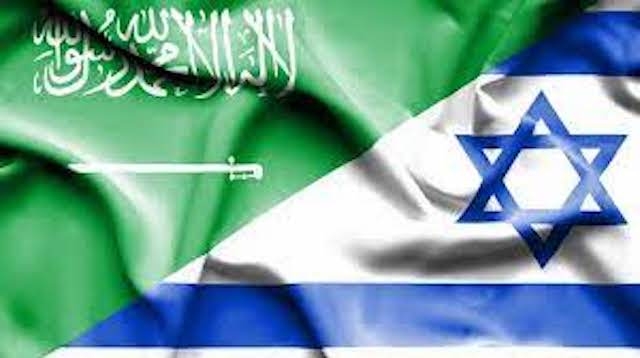In the heart of the Arabian desert, a crucial diplomatic effort is unfolding. Senator Lindsay Graham of South Carolina found himself in the western Saudi oasis town of Al Ula, renowned for its ancient Nabatean ruins, for a series of pivotal meetings. The setting: a luxurious tent adorned with ruby red rugs and burgundy cushions, under the vigilant guard of Saudi security, protecting the nearby winter camp of Crown Prince Mohammed bin Salman.
These discussions form a part of a broader diplomatic initiative involving American lawmakers and diplomats. Their objective? To lay the groundwork for a potential tripartite treaty between Saudi Arabia, Israel, and the United States. The stakes are high: concluding the Israel-Hamas conflict, stabilizing the Middle East, and shaping a future of Palestinian self-governance in the Gaza Strip.
Saudi Crown Prince MBS hosted US Senator Lindsay Graham at Al-Ul, Saudi Arabia 🇸🇦 pic.twitter.com/VZlYJZBhbU
— The Economist (@SonarxLidar) January 8, 2024
The central question looms: Will the Israeli government and its populace endorse a path towards a Palestinian state as a trade-off for a peace treaty with Saudi Arabia, backed by the United States?
Despite Israeli Prime Minister Benjamin Netanyahu and his right-wing coalition's initial dismissal of a Palestinian state following the Oct. 7 Hamas attack, there's a growing perception that a normalization deal with Saudi Arabia could be a strategic victory for Netanyahu. This sentiment is echoed by six individuals closely connected to the ongoing negotiations.
Nadav Eyal, a prominent columnist for Yediyot Ahronot, asserts, “Normalization with Saudi Arabia would be a significant political triumph for Netanyahu, offering a strategic exit strategy.”
The US is willfully ignoring the fact that Hamas doesn't want a state beside Israel: they want Israel; also the fact that Saudi Arabia would love to see Hamas wiped off the map: Surrender: Blinken Tells Netanyahu Israel Can‘t Defeat Hamas https://t.co/ARHuBvPAAu via…
— Barbara Kay (@BarbaraRKay) January 18, 2024
The discussions among Saudi, U.S., and Israeli officials envision a comprehensive plan. It includes reconstructing Gaza with substantial support from Arab neighbors, establishing moderate Palestinian leadership, and ratifying a U.S.-Saudi defense treaty to counter Iran. Crucially, Saudi Arabia demands a realistic route towards a Palestinian state.
An anonymous adviser to a member of Israel’s war Cabinet noted, “If the Saudis present a favorable deal, Israel will undoubtedly support it.” Yet, there's caution within Israeli circles. The recent terrorist attack has left the Israeli public hesitant to entertain the notion of a Palestinian state.
“The topic of a Palestinian state is currently too sensitive in Israel,” remarked another senior Israeli official. “The focus is on the war and its aftermath, not on rewarding Palestinians.”
Netanyahu rejected Palestinian state as pathway to Saudi normalization https://t.co/O6RwZyANsw via @Israel Today
— Jim Brown (@Esther4_12) January 18, 2024
The complexities are manifold, involving political dynamics across three nations. Saudi Arabia's aspiration to secure civilian nuclear technology, requiring U.S. Congressional approval, adds another layer to these intricacies. Furthermore, Saudi insistence on a Palestinian state, a stance shared by U.S. Secretary of State Antony Blinken, poses a challenge within Netanyahu's right-leaning coalition.
While these challenges are formidable, progress in talks suggests more diplomatic encounters in Al Ula.
The American initiative aims to build upon the Abraham Accords, which established ties between Israel and several Arab nations in 2020. Michael Singh of the Washington Institute for Near East Policy highlights, “Saudi-Israel normalization is the ultimate goal, given Saudi Arabia's influence in the Muslim world.”
Senator Graham's role has been pivotal, with multiple visits to Saudi Arabia to garner bipartisan support in the U.S. Senate for a U.S.-Saudi security treaty. His diplomatic journey included discussions in Israel, culminating in a meeting with Netanyahu on January 4.
Graham, post-meeting in Israel, emphasized, “Stabilizing this region is crucial, especially given Iran's ambitions.”
From Israel, Graham proceeded to Al Ula for discussions with Prince Mohammed, later expressing optimism about Saudi-Israel normalization on social media.
Following Graham's visit, Saudi Foreign Ministry statements highlighted discussions on "regional and international developments."
Significantly, a bipartisan Senate Intelligence Committee delegation also engaged in talks in the region, reflecting the broad U.S. commitment to these efforts.
Saudi Arabia's Ambassador to the U.K., Prince Khalid bin Bandar, reiterated the possibility of Saudi-Israel normalization, contingent on progress in resolving the Israel-Hamas conflict.
The groundwork for Saudi-Israel relations has been evolving over the years, with Israeli journalist Amit Segal recalling a significant moment in Netanyahu's office linked to Saudi Arabia's stance on Iran.
Netanyahu's public stance remains firm, focusing on Hamas' destruction and preventing future threats from Gaza. However, Israeli officials have hinted at more nuanced positions regarding Gaza's future governance, emphasizing the need for moderate Palestinian leadership.
Saudi Arabia's foreign minister says an agreement to create a Palestinian state would be a precondition for establishing formal diplomatic ties with Israel.
— Bloomberg Middle East (@middleeast) January 20, 2023
"That’s the priority,” Prince Faisal bin Farhan tells @ManusCranny at Davos https://t.co/2HhV3irNaF via @BloombergTV pic.twitter.com/SYshLbh56s
Israeli Defense Minister Yoav Gallant has spoken about a Palestinian-led future for Gaza, asserting, “Gaza's governance must emerge from within and be Palestinian-led.”
Despite these developments, Netanyahu maintains a hard line in domestic discussions, referencing the Oslo Accords as a cautionary tale and underscoring his opposition to repeating past mistakes.
This confluence of high-stakes diplomacy, regional complexities, and political maneuvering underscores the delicate balance of interests and the potential for a significant shift in Middle Eastern politics. The outcome of these discussions could redefine relationships and shape the future of the region.


